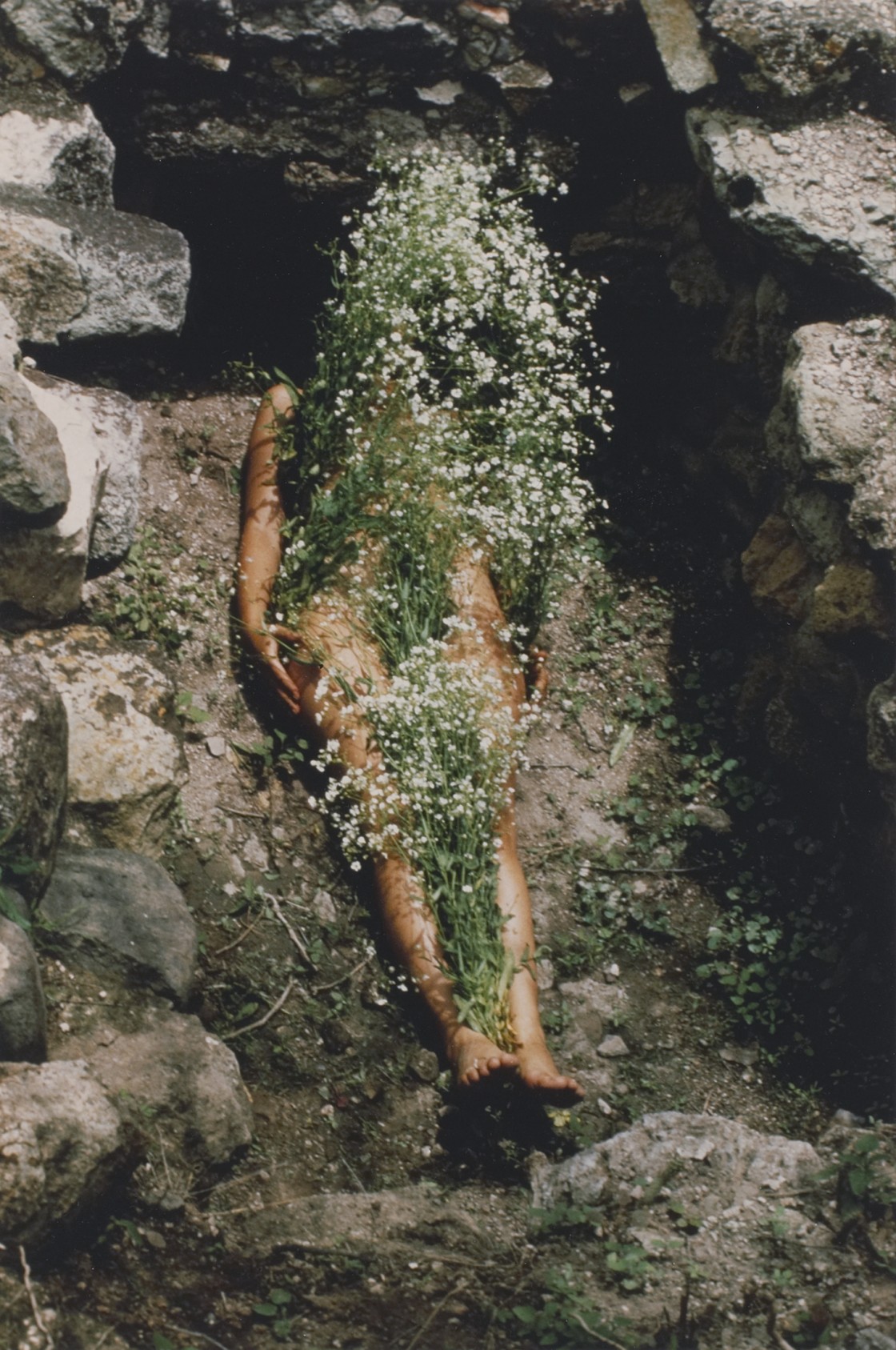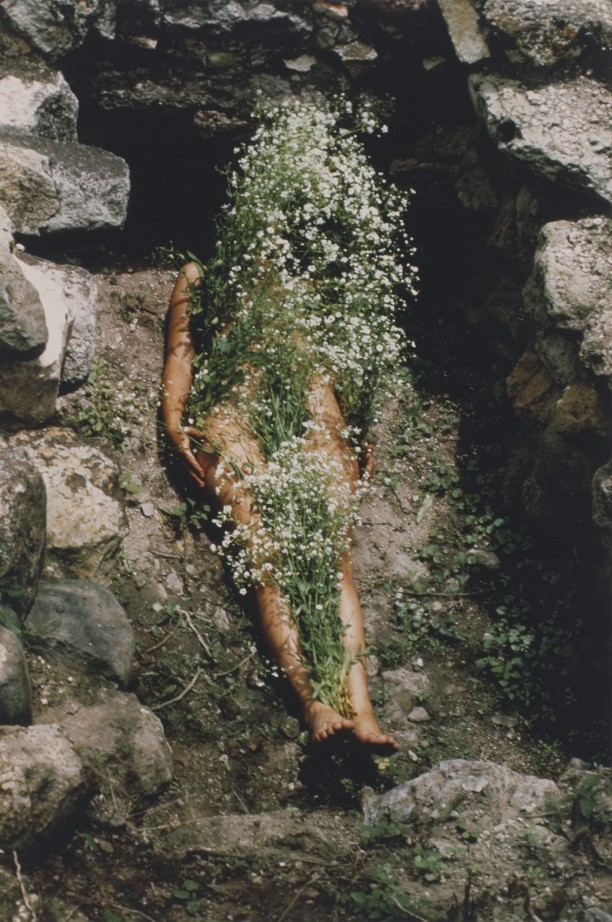Silueta Works in Mexico
1973-1977 (estate print 1991)

-
Medium
Color photograph
-
Dimensions
Frame (Dark wood): 19 3/8 x 26 7/8 x 1 in. (49.21 x 68.26 x 2.54 cm)
Image: 19 1/4 x 12 7/8 in. (48.9 x 32.7 cm) -
Credit
The Museum of Contemporary Art, Los Angeles
Purchase with a grant provided by The Judith Rothschild Foundation -
Accession number
97.119.7
-
Object label
In her series of Siluetas, or “silhouettes,” Ana Mendieta recorded in various ways the presence of her body in Mexico’s Oaxaca Valley. Unlike many land art pieces of the period, Mendieta’s private performances and landscape interventions were temporary, surviving only in the photographs that document them. She arrived in the United States at the age of twelve, in exile from Cuba, unaccompanied by her parents, and spent her adolescence in orphanages and foster homes. Torn away from her homeland, Mendieta felt “cast from the womb (nature).” She conjured up ancient goddess and fertility archetypes in her art in order to reconnect to Mother Earth. The woman lying in a pre-Hispanic tomb appearing to sprout flowers, the effigy created from burned twigs in a colonial basilica niche, the body imprinted on a bedsheet with blood-colored paint—all are simultaneously symbols of universal womanhood and iterations of an individual displaced Latina.
